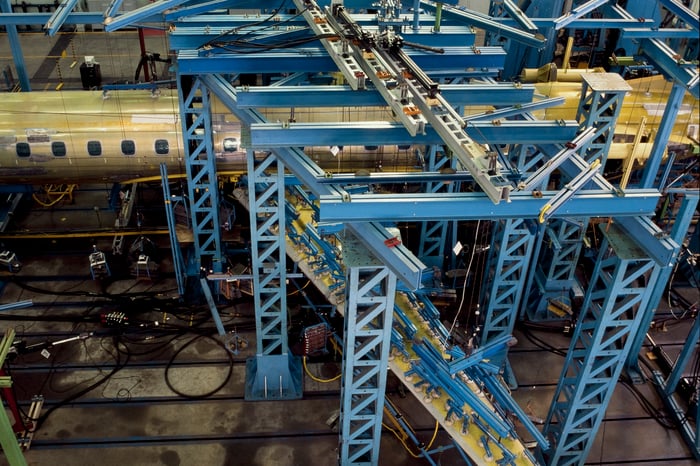What happened
April was a miserable month for many commercial aerospace companies, but Heico (HEI 2.71%) was a noticeable exception. Shares of the company gained 17.4% for the month, according to data provided by S&P Global Market Intelligence, outperforming a strong S&P 500 by nearly 5 percentage points.
So what
Heico shares are down 27% year to date, but that figure makes it a relatively safe-haven stock in a year when most commercial aerospace suppliers have been pounded. The COVID-19 pandemic has had a significant impact on the airline industry, causing carriers to cut flights, ground planes, and seek additional ways to save money. That likely means fewer new plane orders, and less demand for spare parts, sending the makers of those parts tumbling.
Data by YCharts.
Heico's secret? Its exposure to commercial aerospace is a lot smaller than most of those other companies. About half of Heico's revenue is derived from defense, space, medical, and other high-end electronic and industrial markets.
In a mid-month update, the company stated that the non-commercial aerospace half "has not been fundamentally impacted by the crisis," saying results in those areas remain "materially consistent" with pre-crisis expectations.
That's not to say Heico's business isn't feeling any pinch. The company said it has experienced periodic operational disruptions resulting from supply chain disturbances, staffing challenges, temporary facility closures, and other issues. And Heico admitted those issues could grow into material concerns as the pandemic plays out.

Image source: Getty Images.
Now what
Heico is on a non-calendar fiscal year, and its fiscal second quarter doesn't end until April 30. So unlike with most of the S&P 500, we'll have to wait until late May to get another update on operations.
The company remains optimistic, arguing in the mid-month update that because much of its commercial aerospace revenue "is derived from sales of products and services which save aircraft operators, like airlines, significant costs compared to their alternatives, we believe our commercial aviation aftermarket revenues will recover faster than the overall market."
It's true airlines are going to be looking to save every penny they can through the downturn, but Heico's forecast still seems a little too optimistic to me. This is a good company with some competitive advantages through the downturn, and it makes sense it has fallen much less than some of its peers. But investors should understand that Heico is still unlikely to make it through the crisis unscathed.




